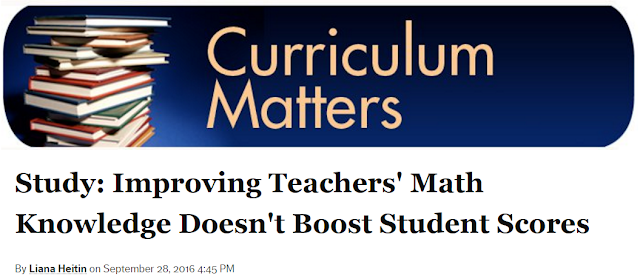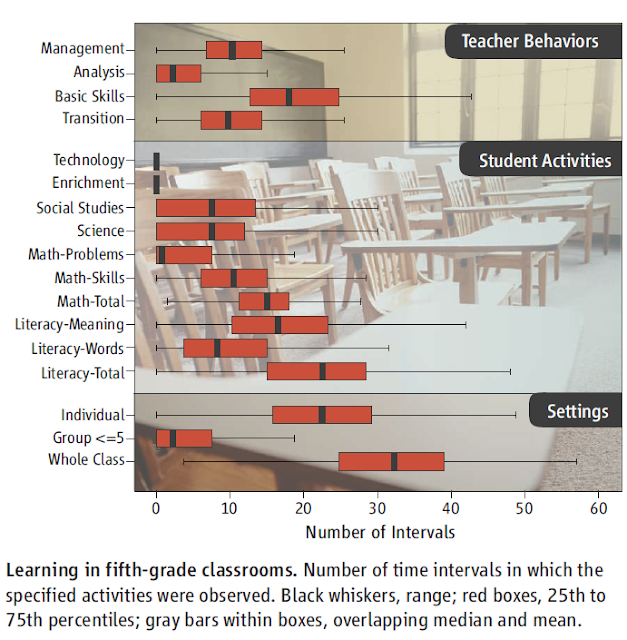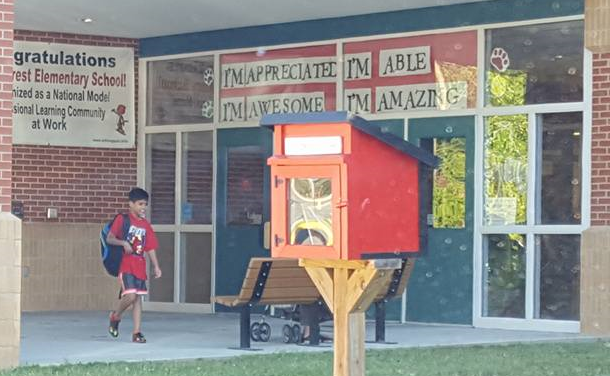Content Knowledge Is Important in Teaching

Everyone including teachers and parents are very busy nowadays. Both time and attention are at a premium. Headlines therefore matter. Seeing an article with a title that says, " Study: Improving Teachers' Math Knowledge Doesn't Boost Student Scores ", can thus leave an impression that either content knowledge is unimportant in teaching, or studies on education are simply spurious. The truth is: Content knowledge matters in teaching and studies on education are not really fraudulent. Oftentimes, it is the title that is grossly misleading. Above copied from Education Week's blog The above article on Education Week talks about a study recently released by the Institute of Education Sciences (IES) entitled " Focusing on Mathematical Knowledge: The Impact of Content-Intensive Teacher Professional Development ". The title of this study actually makes it clear that it is simply measuring the effect of a particular teacher professional development progr...












